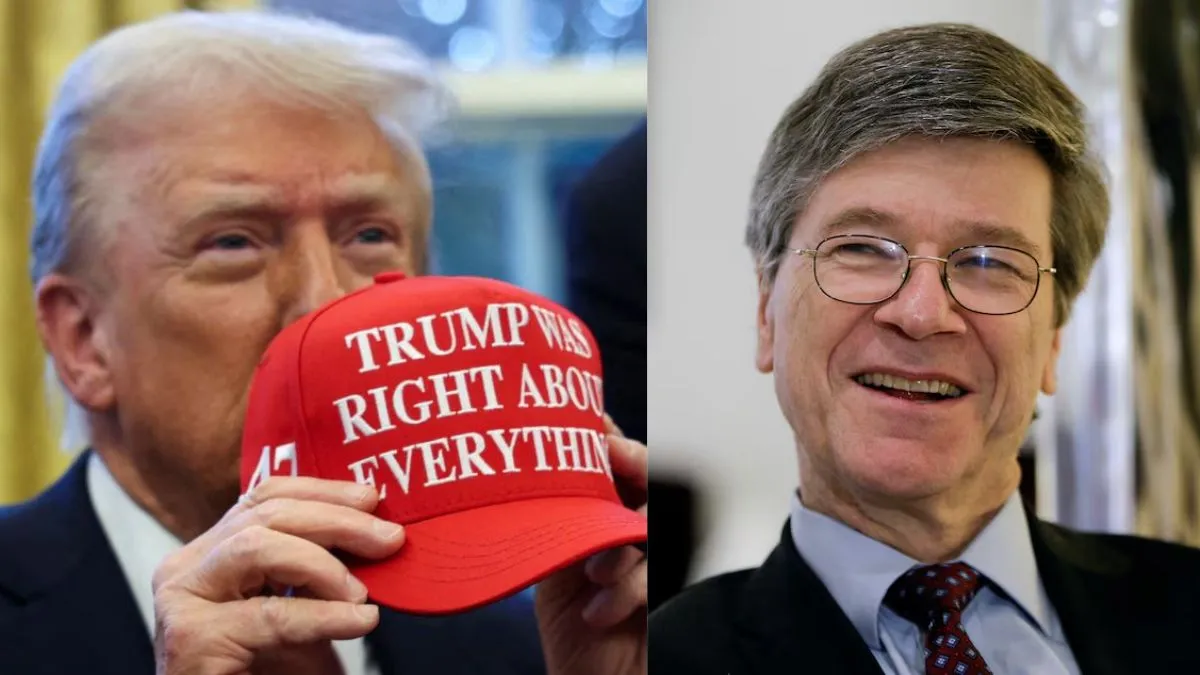Renowned US economist Jeffrey Sachs has strongly criticised the move US President Donald Trump’s decision to impose a 50 per cent tariff on Indian imports, calling the move “unconstitutional” and warning that US politicians “do not care at all about India.” Sachs also advised New Delhi not to expect any significant trade or security advantage from aligning too closely with Washington in the Quad against China.
Speaking during an interview with Hindustan Times, Sachs stated, “US politicians don’t care at all about India. Please understand this. India is not going to reap long-term security by siding with the United States in the Quad against China. India is a great power that has an independent standing in the world. Everything that Trump is doing on tariffs is unconstitutional.”
Trump’s Tariffs Deepen US-India Trade Rift
US president’s decision to impose a 50 per cent duty on Indian imports, doubling an earlier 25 per cent penalty, comes amid tensions over New Delhi’s continued purchase of Russian oil and arms. Trump has also ruled out resuming trade negotiations with India until the tariff issue is resolved. “No, not until we get it resolved,” Trump told reporters in the Oval Office on Thursday, in response to a question about potential talks. Trump responded sharply to India’s defence and energy cooperation with Moscow, saying in a recent social media post, “I don’t care what India does with Russia. They can take their dead economies down together, for all I care.”
India’s Ministry of External Affairs called the decision “extremely unfortunate,” noting that other nations also carry on trade with the Russian Federation. Sachs, one of the world’s most well-regarded economists and public policy analysts, emphasized that India needs to moderate its hopes of an intensive trade relationship with Washington. “When I was in India last spring, I said, Don’t expect some great trade relationship. What India has wished for, I think, is that it would be a good partner of the United States because it would be a means for the US to, I’ll charitably say, decrease its reliance on China and enhance supply chains with India. I attempted to clarify, don’t expect that,” Sachs said to Hindustan Times.
Economist Mocks Trump’s Tariff Logic
On the issue of India-China relations after the border skirmishes, Sachs replied, “A good economic relationship between the two countries would be great for India’s economy and good for creating a multipolar world that’s not reliant on the US’s moods.” He pointed out that China’s economy and international trade volumes are far greater than the US’, and it would be advantageous for India to diversify its economic and strategic relations.
ALSO READ: How Much India Has To Spend On Oil Imports If It Stops Buying Russian Crude Oil?
Sachs has also been a vocal critic of Trump’s trade policies, earlier calling them “delusional” and “with no serious economic basis” at the Antalya Diplomacy Forum in Turkey. Comparing the two, he said, “If you use your credit card and go out and shop and accumulate a big credit card debt, you’re running a trade deficit, with all the shops. It would be rather peculiar then if you complain all the shopkeepers for having sold you all those goods. ‘You’re stealing from me.’ That is the extent of the comprehension of the President of the United States.”
Sachs said trade deficits are not proof of foreign cheating, but an indication of a nation’s spending outpacing its production or earnings. He contended Trump has misled segments of the American voter, especially in the heartland, by attributing job loss to trade alone rather than automation and inadequate investment in retraining.
ALSO READ: Indian Ambassador Meets US Senator Who Warned Of 500% Tariff, Reaffirms Energy Trade Commitment
The newest tariff move risks negating years of diplomatic work at forging US-India strategic and economic relationships. Senior Democrat Congressman Gregory Meeks cautioned that Trump’s “tariff tantrum” will reverse the gains in the bilateral relationship. The second round of trade negotiations, which were originally set to take place on August 25 in New Delhi, is now uncertain, only days before an extra 25 per cent tariff on Indian imports,in addition to the already imposed 25 per cent will be enforced. With each side entrenched, the consequences of the tariff war can cascade into global markets, affecting supply chains and commodity prices.
